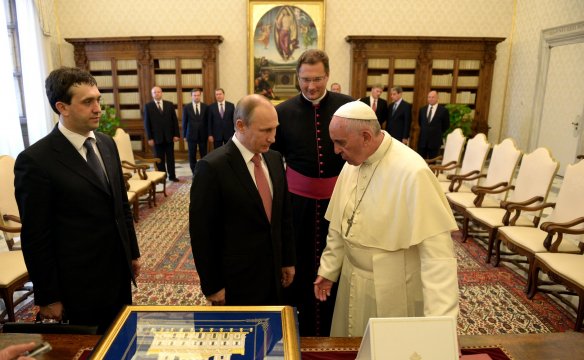
The bottom line: By the grace of God, I have nothing to regret in my life.
The pattern of brinksmanship, in which air incidents in the Baltic theater interplay with tank and artillery engagements in the Donbas war zone, is so obviously detrimental to Russia’s interests that a determined effort at breaking it appears inevitable. Western leaders focus on measures for containing Russia, expecting that the break may come in the form of discharging tensions and managing the hostilities. For the Kremlin, however, the incentives to go in this direction are weakened by the need to justify the consequences of the maturing economic crisis to the demobilized populace and disgruntled elites. The more emphasis is placed on the “majestic” and “heroic” past, the less space there is for compromises and retreats for the policymakers entrapped in their own propaganda. Russia’s history is rich and tragic indeed, but turning the country toward a glorified and deeply false version of the past is not just a convenient means to politically prop up the regime. It promises to deny Russia a peaceful future, or maybe any future at all.
The full article is in Eurasia Daily Monitor, June 15.